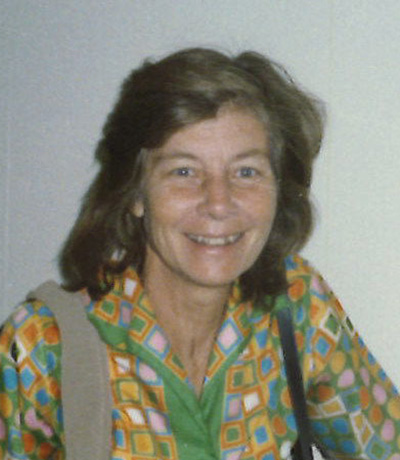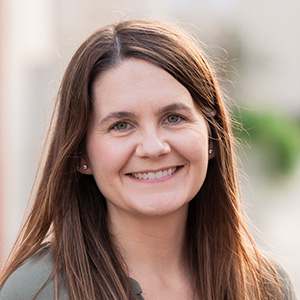In memoriam: Edith C. Wolff
Edith Clarke Wolff, an enzyme biochemist at the National Institutes of Health and a former assistant to the editor of the Journal of Biological Chemistry, died March 24. She was 94 and had been a member of the American Society for Biochemistry and Molecular Biology since 1986.

Born November 1, 1929, in Brooklyn, New York, Edith Clarke attended Smith College before earning her Ph.D. in 1956 from Harvard Medical School/Radcliffe Graduate School, where she studied the effect of thyroxine on succinate oxidation. While at Harvard, she met her future husband, Jan Wolff, also a scientist. They married in 1955.
Edith Wolff conducted postdoctoral research at the NIH and then at the Medical Research Council’s National Institutes for Medical Research in the U.K. before taking a research position with the NIH in 1959. After working at the National Institute of Dental Research from 1959 to 1962, she stayed at home with her children until Herbert Tabor, then an associate editor for the JBC, asked her to oversee the journal’s flow of manuscripts.
“In those far-off days, everything was literally on paper,” Wolffe wrote in a remembrance for Tabor’s 100th birthday in 2018. “Manuscripts came in and went out by mail (quite expensive) or courier. Card files recorded which manuscripts went to which associate editors, tallied the number of manuscripts read by each member of the editorial board and marked the decisions. The index for each issue of the journal was punched into IBM cards.
After Tabor was appointed the JBC’s editor-in chief in 1971, Wolff continued to oversee the journal’s editorial office until 1986. She then decided to return to research at the NIH, where she studied the unusual polyamine-derived amino acid hypusine. “Herb must have infected me with his fascination with polyamines,” she wrote.
She retired from the NIH in 1998 but continued to work as a volunteer.
Wolff was an avid walker, skier, hiker, swimmer, sailor and outdoor enthusiast, according to an obituary.
She is survived by her husband of 68 years, Jan Wolff, a researcher at the National Institute of Diabetes and Digestive and Kidney Diseases. Also surviving are her children, Bretton R. Wolff and Renée S. Wolff and husband Aleksandar Milosavljevic-Cook; and grandchildren, Ellyn, Stefan, Lucas, Sofia, and Vivienne.
Enjoy reading ASBMB Today?
Become a member to receive the print edition four times a year and the digital edition monthly.
Learn moreGet the latest from ASBMB Today
Enter your email address, and we’ll send you a weekly email with recent articles, interviews and more.
Latest in People
People highlights or most popular articles

Simcox wins SACNAS mentorship award
She was recognized for her sustained excellence in mentorship and was honored at SACNAS’ 2025 National Conference.

From humble beginnings to unlocking lysosomal secrets
Monther Abu–Remaileh will receive the ASBMB’s 2026 Walter A. Shaw Young Investigator Award in Lipid Research at the ASBMB Annual Meeting, March 7-10 in Washington, D.C.

Chemistry meets biology to thwart parasites
Margaret Phillips will receive the Alice and C. C. Wang Award in Molecular Parasitology at the ASBMB Annual Meeting, March 7-10 in Washington, D.C.

ASBMB announces 2026 JBC/Tabor awardees
The seven awardees are first authors of outstanding papers published in 2025 in the Journal of Biological Chemistry.

Decoding how bacteria flip host’s molecular switches
Kim Orth will receive the Earl and Thressa Stadtman Distinguished Scientists Award at the ASBMB Annual Meeting, March 7–10, just outside of Washington, D.C.

Thiam elected to EMBO
He was recognized during the EMBO Members’ Meeting in Heidelberg, Germany, in October.

